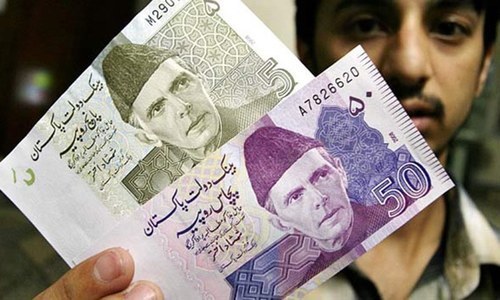ISLAMABAD: Upward acceleration of global inflation from record low levels may impair efforts to sustain the low inflation environment achieved over the past several decades in these economies, says the World Bank in its ground-breaking report on inflation in the emerging and developing economies.
The adverse effects of high inflation can fall disproportionately on the poor, who hold most of their assets in cash and rely heavily on wage income, welfare benefits, and pensions, the World Bank said in its report: Inflation in Emerging and Developing Economies: Evolution, Drivers, and Policies, published on Wednesday.
High inflation has historically also been associated with slower economic growth, making efforts to maintain low and stable inflation crucial for reducing poverty and inequality, the World Bank said.
To investigate the impact of inflation on emerging and developing economies, the World Bank’s Prospects Group has produced the first wide-ranging analysis of inflation and its implications for these economies in a long time. The new study also includes a global inflation data-set that covers more than 175 countries over 1970-2017.
Key findings of the report say the influence of this global inflation cycle has been most prominent in countries that are more developed and more integrated into the global economy.
The global inflation cycle has fluctuated with movements in global demand and abrupt swings in oil prices.
Inflation expectations in such economies are more sensitive to global and domestic developments than inflation expectations in advanced economies.
Struggling economies with lower public debt and greater trade openness tend to experience better-anchored inflation expectations.
Exchange rate movements can amplify the impact of global forces on national inflation in emerging markets and developing economies. Greater central bank credibility and independence have been associated with significantly lower pass-throughs of exchange rate fluctuations to inflationary pressures.
The downward trend of exchange rate pass-through in the last 20 years may in part reflect improved central bank policies and a firmer anchoring of inflation expectations.
The improved inflation performance of low-income countries appears, to a considerable extent, to have reflected external forces. If global inflation rises, low income countries may see rising inflationary pressures as well.
The study documents the confluence of structural and policy factors that have fostered low global inflation over the past five decades. Foremost among these has been unprecedented international trade and financial market integration.
The adoption of more resilient monetary, exchange rate and fiscal policy frameworks among some emerging and developing economies has facilitated better control of inflation. However, external factors that have held inflation at bay over the past decades may lose momentum or be rolled back.
The study also looks into the evolution of inflation and the global and domestic factors that drive it; how inflation expectations affect price stability; and how exchange rate fluctuations can pass through to cause inflation. The study further looks specifically at how monetary policy and food price movements affect inflation in low-income countries.
Published in Dawn, November 10th, 2018















































